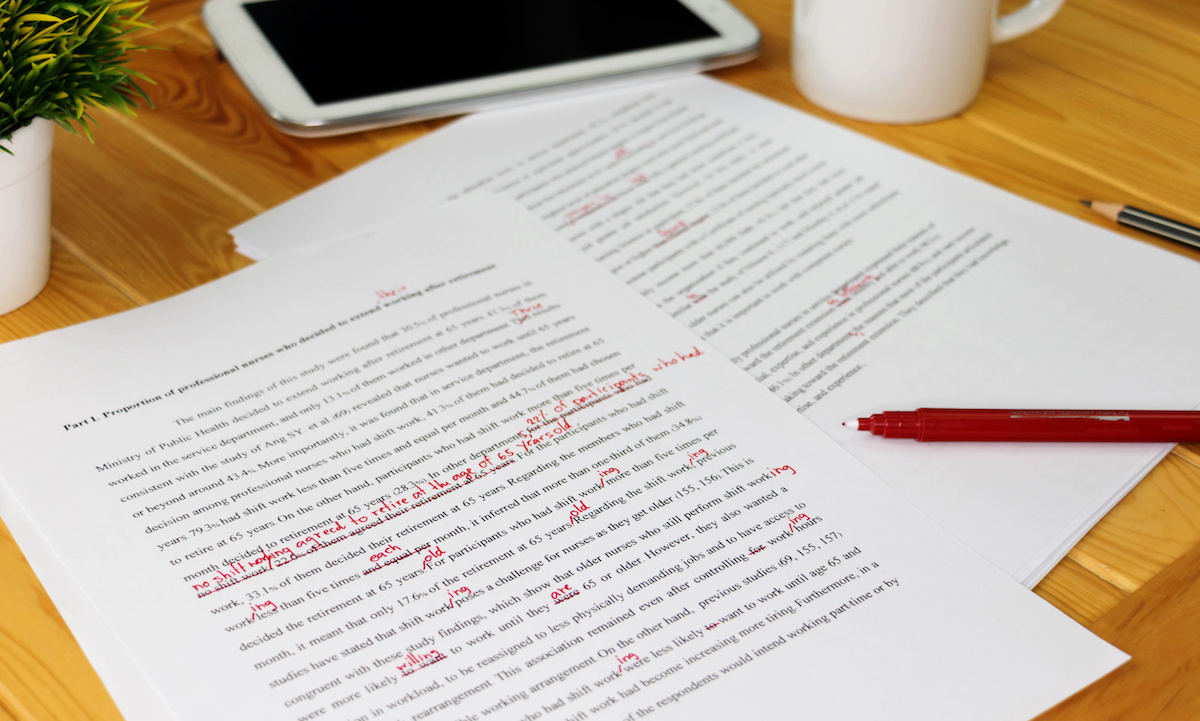
The publishing profession necessitates a strong command of spelling and punctuation and the ability to work under pressure.
As an apprentice copy editor you will ensure that the material is clear, consistent, thorough, and credible and that language is correctly written and grammatically correct. In addition, you will be in charge of preparing the original text, or copy, for publication.
You must check spelling, punctuation, and layout, verify material, use consistent styles, and rework or rewrite (copy-editing). The project, the employer or client, and their specialisation influence this. Many copy editors work on both duties at the same time.
Responsibilities
Throughout your apprenticeship, you may help:
- correct spelling, grammar and punctuation errors
- check the length of the text fits in with publisher requirements
- make sure the text is in the right style for the intended audience
- apply a ‘house style’ to content written by more than one writer
- make sure the meaning of the text is clear
- check for legal issues like libel or breach of copyright.
Salary
- The Chartered Institute of Editing and Proofreading publishes suggested minimum hourly rates every year. The rates for 2021 were £25.70 an hour for proofreading, £29.90 for copy-editing, rising to around £34.40 for substantial editing or rewriting.
- Rates for the project management of the entire process of editing from first manuscripts through to production are usually much higher than for copy-editing, at over £35 per hour.
Working hours
Working hours vary. Copy-editors based in-house generally work normal office hours but may need to work longer hours in busy periods. Deadlines are very tight due to the nature of the work.
Working environment
You could work in an office or from home.
Qualifications
Qualifications you can achieve as an apprentice copy editor include:
- Level 3 Publishing Assistant – Entry requirements for this level include 5 GCSEs at grades 9 to 4 (A* to C), or equivalent, including English and maths, for an advanced apprenticeship. This qualification will take 18 months to complete.
Skills
On a copy editor apprenticeship, you’ll learn:
- knowledge of English language
- excellent written communication skills
- knowledge of media production and communication
- to be thorough and pay attention to detail
- the ability to work well with others
- excellent verbal communication skills
- the ability to accept criticism and work well under pressure
- the ability to use your initiative
- to be able to use a computer and the main software packages competently.
Employers
The vast majority of copyeditors and proofreaders work independently and on a freelance basis. There are just a few in-house positions available, particularly with big publishers, and competition may be fierce.
Companies that produce general or consumer books are part of the book publishing sector. They include best-selling fiction and nonfiction. Finding editing work in fiction, on the other hand, is more difficult.
The business publishing sector is expanding. For example, large commercial organisations develop employee magazines, bulletins, and promotional materials and may contract freelancers to proofread work.
Professional development
If you work in-house, you will likely get some basic training, usually consisting of shadowing and receiving help from more experienced colleagues.
Technical skills are required in this career and must be maintained on an ongoing basis, particularly in response to technology changes.
The CIEP also has four membership levels: entry-level, intermediate, professional, and advanced professional.
Career prospects
You’ll often begin by updating text on a basic level before progressing to more complex editing and rearrangement, which pays more.
Freelance copy-editors and proofreaders gain expertise and specialise in a specific sector of work and topic matter, such as scientific, medical, or food writing.
You can progress to project management if you work freelance or advance to managing/desk editor if you work in-house. These responsibilities entail the long-term management of a magazine and subcontracting or assigning work to copy editors and indexers. This may be a natural progression inside large publishing houses, but there are better options than this. For example, other professional copy-editor services have grown to encompass editing, typesetting, and on-screen layout.
Working in-house as a copy-editor necessitates frequent work switching to get the most extensive range of skills and contacts. This is especially important for those who aspire to work as freelancers in the future.
Whichever route you choose, it is strongly advised that you join either CIEP or SYP. Membership, such as CIEP’s local clubs that meet regularly, gives support and opportunities for professional networking in what can be a lonely job.
Making and maintaining business ties is critical for a successful copy editor or proofreader career. While well-targeted speculative submissions may result in employment, knowing editors and commissioning editors inside publishing organisations is a common method of getting work and climbing the professional ladder.
